Best No-Code AI Tools for Beginners and Non-Technical Users
Artificial intelligence is no longer a field that only computer programmers and tech gurus can enter. When using No-code AI platforms, machine learning technology is available to everyone without coding.
Whether you run a small business, work as a creative, or an enthusiast, these tools allow you to learn, innovate, and use AI. No-code AI solutions have made automation, data analysis, and creative work easier and more accessible.
Whether it is a drag-and-drop interface, premade templates, or step-by-step guides, complex AI processes have all been simplified to a few clicks. You no longer need to be a tech expert to create chatbots, analyze data, develop unparalleled content, and automate workflows.
Why No-Code AI Tools Are Important
The advantages of using No-Code AI tools for the average user include:
- Immediate deployment – users can start creating AI solutions within minutes of registering instead of months of learning programming
- Affordable – some platforms offer free tiers, with others starting at an affordable monthly subscription price, which makes AI budget-friendly for individuals and small businesses
- Easy-to-use visual workflow for building – you can see how your AI is working and change the workflow easily
- Pre-trained models to get you started – access to AI services without the need to train your own models from scratch
- Community support – from active community forums to in-depth documentation, you have the tools to solve problems as they occur
Essential No-Code AI Tools
Zapier
If I had to choose one, Zapier is the entry drug of AI automation. It links them with more than 5,000 apps and services to enable you to build workflows of your own called “Zaps” that perform actions when specific conditions occur.
Key Features:
- Simple trigger-and-action automation
- AI-powered app suggestions
- If you use Gmail, Slack and Google Sheets this will fit in perfectly with your work routine
- Thousands of pre-built automations in the template library
Useful for: Business Process Automation, Social Media Management, Lead Generation & CRM, Data Synchronization between Multiple Applications
Pricing: Free plan limited to 100 tasks per month; paid plans from $19.99/month for up to 1000 tasks
Bubble
Bubble is a platform that empowers people to build web applications without code. With its visual programming interface, you can easily design databases, build user interfaces, and incorporate business logic with just a few clicks.
Key Features:
- Visual web app builder
- Database management system
- User authentication and payment processing
- Mobile-responsive design capabilities
- Plugin marketplace for extended functionality
Suitable For: Building marketplaces, social networks, booking platforms and custom business applications
Price: Free plan with Bubble branding / $25 per month starting plan
Airtable
Airtable is much more than a database. It gives you the simplicity of a spreadsheet with the power of a relational database, all while being smarter and friendlier to use than Microsoft Excel. AI ensures that the software has all the organization and information to extrapolate intelligence from, provide insights and automate mundane/repetitive tasks.
Key Features:
- Spreadsheet-database hybrid interface
- Custom field types and formulas
- Kanban boards and calendar views
- AI-powered data organization
- Team collaboration tools
Ideal For: Project management, content planning, inventory tracking, and customer relationship management
Pricing: Free to use plan for personal uses; starts with the team at $10 per seat/month
Notion AI
Notion – note-taking and project management with AI built in. It is an all-in-one workspace, which means it provides tools to assist with writing, brainstorming and organizing content as well as artificial intelligence (all of this in one package!).
Key Features:
- AI writing assistant
- Different use cases template library
- Database and wiki functionality
- Team collaboration features
- Content generation and summarization
Ideal For: Content creation, project documentation, team wiki systems, personal productivity systems
Price: Free plans; Notion AI is $8-$10 per month (as an additional plan)
No-Code Creative AI Tools
Canva Magic Design
With Canva, enterprises access a suite of powerful design tools to create professional graphics — and anyone can use these tools without any advanced training or graphic design skills.
Key Features:
- AI-generated design suggestions
- Magic Resize for multiple formats
- Background removal and replacement
- Brand kit integration
- Thousands of templates and assets
Ideal For: Social media, presentations, marketing and branding
Price: Basic plan Free (AI elements are limited); Canva Pro $14.99 per month full access AI
Jasper AI
First known as Jarvis, Jasper focuses on AI writing for marketing and business communications. You get templates, workflows to help you create content of all types.
Key Features:
- 50+ content templates
- Brand voice customization
- Multi-language support
- SEO optimization suggestions
- Team collaboration features
Good For: Blog posts, ad copy, email campaigns, social media content
Pricing: Starting at $39/month for individuals
Loom AI
Loom is screen recording with powerful AI. Users can record their screen and get AI-powered features to create videos like documentation or professional video content without requiring any complex technical skills in video editing.
Key Features:
- One-click screen and webcam recording
- AI-generated video titles and descriptions
- Automatic transcription and captions
- Video compression and sharing
- Analytics and viewer insights
Ideal For: Educational Content, How-To Videos, Product Demos and Team Communication
Price: Free (paid plans from $8/month)
Business Intelligence Made Simple
Tableau Public
Almost all big data visualization tools provide this ability but very few are as easy to use as Tableau Public, allowing the average Joe, or Jane, who does not have access to an enterprise-based solution like this due to budget constraints and lack of training on how to create visually appealing stories from table after table of raw unprocessed data using a simple drag-and-drop interface.
Key Features:
- Drag-and-drop chart creation
- Interactive dashboard building
- Data connection to multiple sources
- Professional visualization templates
- Public gallery for inspiration
Good for: Data analysis, business reporting, academic research and nonprofit advocacy
Pricing: Free for public visualizations; Tableau Desktop is $70/month
Google Analytics Intelligence
Insights powered by Google’s AI that automatically analyzes website data and harnesses the latest in machine learning to uncover meaningful trends, anomalies, problems and opportunities.
Key Features:
- Automated insight discovery
- Plain English explanations
- Trend identification and alerting
- Custom question answering
- Integration with Google’s ecosystem
Ideal For: Site optimization, marketing performance analysis and business intelligence
Pricing: Free with Google Analytics; premium features in GA4
Communication and Customer Service AI
Chatfuel
It is a tool that allows businesses to create messenger bots for Facebook, Instagram and websites with no coding.
Key Features:
- Visual bot builder interface
- Pre-built conversation templates
- Integration with e-commerce platforms
- Analytics and performance tracking
- AI-powered natural language processing
Ideal For: Automated customer service, lead generation, appointment scheduling and FAQ responses
Pricing: Free plan for simple bots; $15/month for advanced features
Tidio
In a marriage of live chat and AI power, Tidio offers 24/7 customer support that is helpful and natural.
Key Features:
- Live chat and chatbot hybrid
- Visual conversation builder
- Multi-channel messaging support
- Customer data integration
- Mobile app for on-the-go management
Ideal For: E-commerce support, lead qualification, appointment scheduling, and customer engagement
Pricing: Free plan with $18/month paid plans
Where to Begin — An Introduction to No-Code AI
Step 1: Identify Your Needs
Before you explore tools, define your needs. Common starting points include:
- Automating repetitive tasks
- Creating content more efficiently
- Analyzing business data
- Improving customer communication
- Building simple applications
Step 2: Use Free Trials
Most platforms offer free tiers or trial periods. Use these to:
- Test the interface without spending any money
- Try the features that are important for your use-case
- Assess the learning curve
- Evaluate customer support quality
Step 3: Join Communities
Active user communities provide:
- Solution sharing and troubleshooting
- Template and workflow libraries
- Best practice discussions
- Networking opportunities with other users
Step 4: Scale Gradually
Start with practical projects that help you gain confidence in your ability. This approach helps you:
- Build foundational skills
- Avoid overwhelming yourself
- Make early wins that will inspire you to learn more
- Create a track record of successful deployments
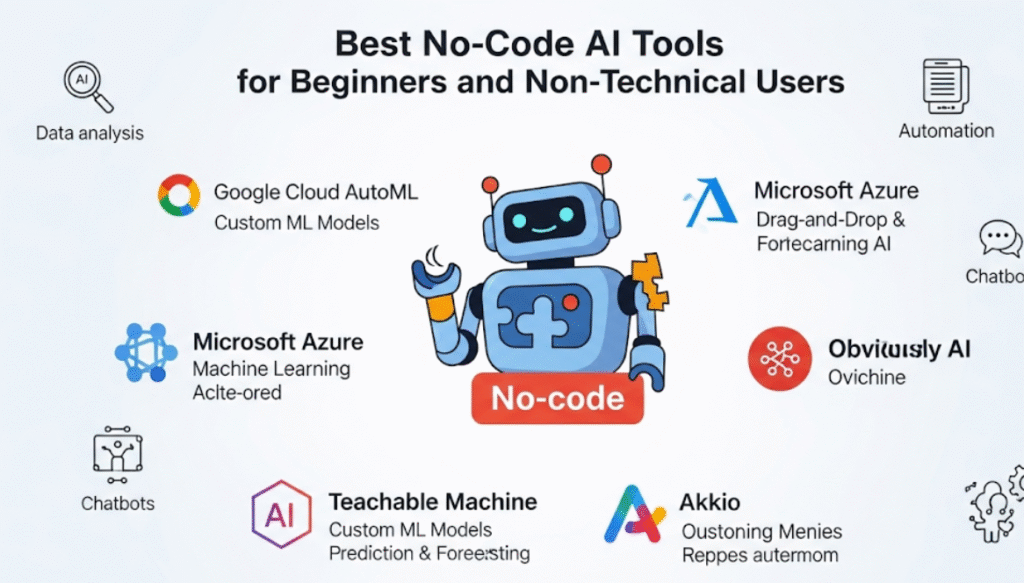
Mistakes to Avoid When Getting Started
Overcomplicating Your First Project
New users often make very complicated attempts right away. Instead, begin gently with small automations or creating simple content. Simple projects serve to build confidence and understanding.
Ignoring Data Privacy and Security
This is also a huge challenge for many no-code platforms that work with sensitive data. Always:
- Review privacy policies carefully
- Understand data storage locations
- Use appropriate security settings
- Follow regulations like GDPR, CCPA
Neglecting User Training
Even user-friendly tools require learning. Invest time in:
- Platform documentation and tutorials
- Community forums and user groups
- Official training resources
- Hands-on experimentation
Not Planning for Scale
Choose platforms that will grow with you:
- Pricing tiers and feature limitations
- Integration capabilities with existing tools
- Performance under increased usage
- Export options if you need to move on from the app
The Future of No-Code AI
The no-code AI landscape is an exciting place to be right now. Emerging trends include:
- Improved Natural Language Interfaces – Tools are starting to provide commands in plain English, therefore democratizing them more
- Better Integration Capabilities — Platforms are getting more connected to common business tools and services
- Vertical Solutions — There are & will be specialized no-code AI tools for healthcare, education, finance etc.
- Mobile-First Development — Several platforms increasingly support mobile development and management
- Integrated AI Development Features – Collaborative and team-based AI development is effectively ubiquitous for most platforms
Measuring Success with No-Code AI Tools
Use these key metrics to track your progress:
Time Savings
- Hours spent on manual work before
- Reduction in project completion time
- Quicker response times to customers or stakeholders
Cost Reduction
- Decreased need for external contractors
- Lower operational expenses through automation
- Decreased error rates and lower costs
Quality Improvements
- More consistent output quality
- Enhanced user experiences
- Better data-driven decision making
Skill Development
- New capabilities acquired
- Increased confidence with technology
- Enhanced problem-solving abilities
Frequently Asked Questions
Q: Are any technical prerequisites necessary to get started with no-code AI tools? A: These are tools for non-technical users. The work can be done by anybody who knows basic computer software and is willing to learn.
Q: What is the cost of no-code AI tools? A: Costs vary widely. Many have free tiers which can be used for personal use or small projects. Paid plans tend to be $10-$50/month for individuals, which can go higher for enterprise.
Q: Can no-code AI tools handle complex business needs? A: Yes, modern no-code platforms are surprisingly powerful. However, very specific or specialized requirements could require custom development work.
Q: What is the timeframe for seeing results with no-code AI? A: Simple automations and basic AI applications can be implemented in hours or days. More complex solutions could take weeks to completely develop and put in production.
Q: Are No-Code AI Tools Secure for Business Use? A: Many well-known platforms have robust security mechanisms. But you should always review security documentation and validate it against your organization’s data protection needs.
Q: What happens to my data if I leave a no-code platform? A: Data portability varies by platform. Before signing up, verify export capabilities and data retention policies so that you are able to get your information back if necessary.
Q: Can no-code AI tools integrate with existing business systems? A: By and large, platforms have rich integration capabilities with typical business tools either via APIs, webhooks or direct connectors. Before you opt for a platform, make sure they offer the integration options you need.
Q: How do I choose the right no-code AI tool? A: Begin by identifying what you hope to accomplish, and then compare platforms on features, pricing, usability and integration capabilities. Most offer free trials so you should test their functionality before investing.
Making the Leap: Starting Your No-Code AI Journey
No-code AI is democratizing artificial intelligence in the biggest technological shift over time. The result is that with these tools, the traditional barriers to entry are abolished and anyone with an idea can tap into the transformational power of artificial intelligence.
Doing well with no-code AI isn’t about being technically competent: it’s about creativity, problem solving and perseverance. Begin small, experiment to your heart’s content, and grow your abilities and confidence over time. This guide showcases the tools which serve as a great first step towards your accessible AI journey.
Bear in mind that the no-code AI space moves pretty fast. These platforms are improving their UIs and expanding their features, making what seems hard today trivial tomorrow. Keep questioning, keep learning and do not shy away from trying new tools or features as they come out.
Winning in this future will mean being skilled at leveraging AI to solve problems and add value. No-code platforms make the future available to everyone, including you.
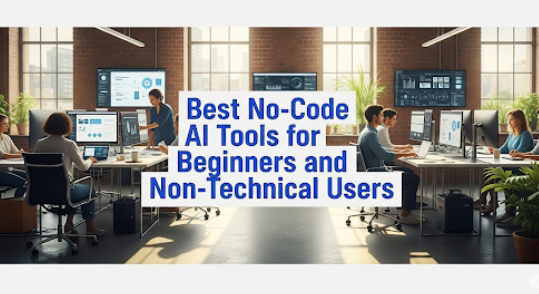
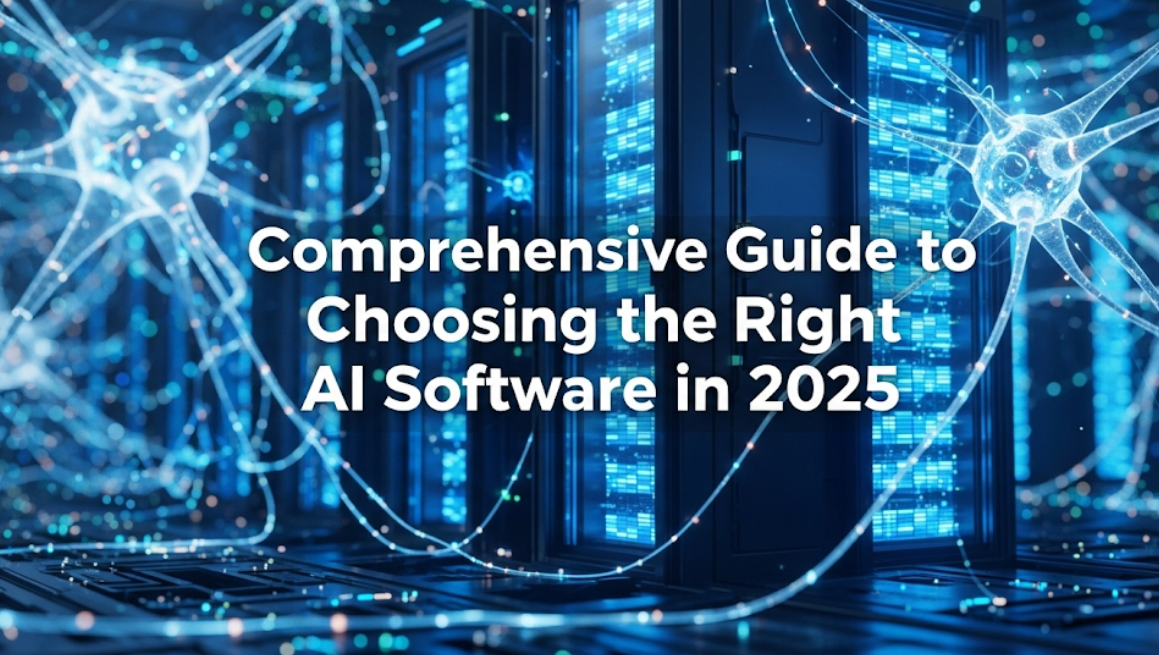
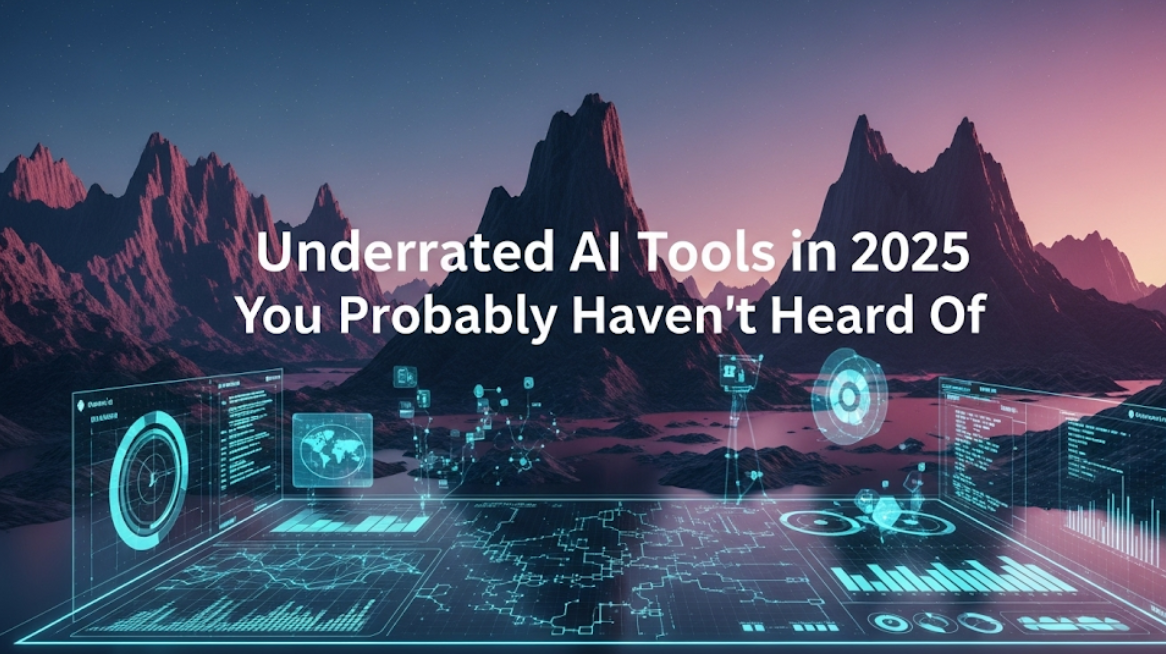
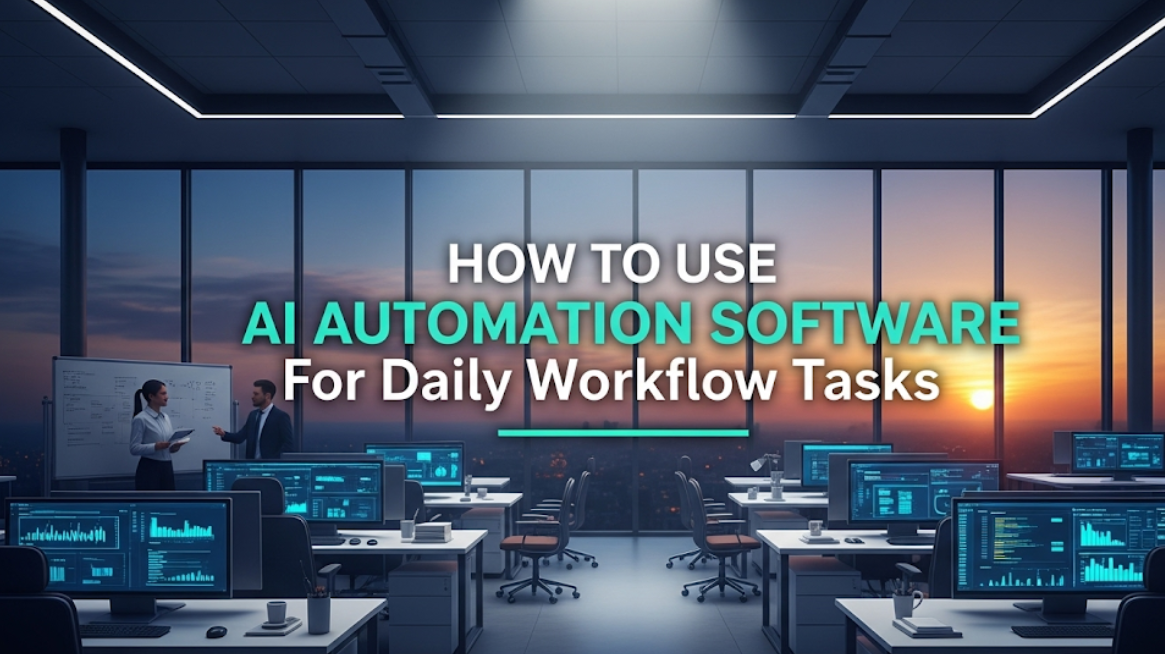


Post Comment